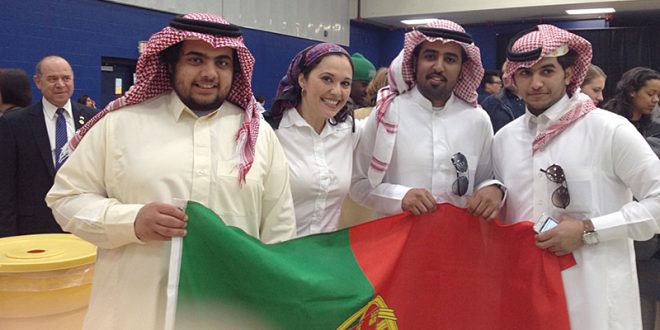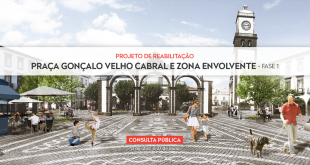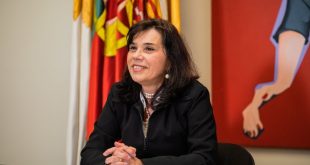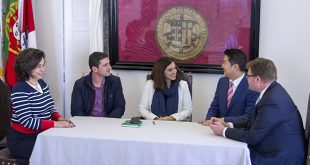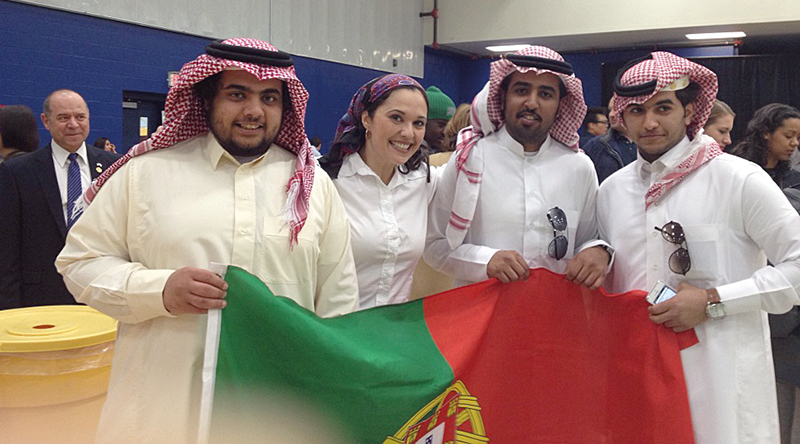
Put aside all that you know about the Kingdom of Saudi Arabia you have seen in mainstream media and open your mind to seeing another side of this country and its people through the eyes of a teacher. Saudi Arabian presence is increasing on college campuses all over America due to the Saudi government granting scholarships to young Saudis to be educated abroad. These students are being exposed to every aspect of American culture, which couldn’t be more different than the Saudi culture they come from. Yes, Saudi culture is ruled by Sharia Law; an ultra-strict and conservative interpretation of Islam. Yes, it’s true that although there is no official law on the books, women are not free to drive. And yes, human rights in Saudi Arabia has been severely criticized for the lack of freedom of speech and unfair treatment to religious minorities. However, just because a government doesn’t adhere to our view of fair and equal treatment, doesn’t mean we should close the doors of dialog and understanding to its people. It was in opening my heart to my Saudi students (both male and female) by immersing myself in their culture, language and religion, was I able to connect to them on a level that reaches far beyond the typical student-teacher relationship. I discovered that my heart has forever been touched by people that were so undeniably foreign to me, that I never imagined the connection I have now with them possible. What fostered that connection one might ask? There are a variety of factors that gravitated me toward developing a strong connection with my Saudi students.
Saudi society has strong tribal roots. Before the oil boom of the 70’s, Saudi Arabia was mostly compromised of “Bedouins,” a type of nomadic dessert dweller. When my modernized Saudi students want to call someone “backward” they refer to him as a “Bedouin.” Every culture has their derogatory word for “Bedouin” like Latin America’s use of “Indio” or Spain’s use of “Gallego” or here in the United States with our use of the word “Redneck.” However, these negative and condescending words fail to appreciate the richness and tradition of simple folk. I have grown to see a Bedouin as part of a Saudi’s bloodline, as a historical and genetic foundation for their story, as much as the great navigators and my ancestors who toiled the land are part of my Portuguese heritage. Bedouin to me implies fierce loyalty to one’s tribe, unwavering regard to a code of honor and extraordinary hospitality that turns away no stranger, not even an enemy. Saudis, in my experience, are quick to smile, quick to help and quick to give anything they have. I have countless artifacts from Saudi Arabia given to me by my generous students that fill my home with an exotic quality that Pier One could never do. For example, a Muslim prayer rug adorns my bedroom, Muslim prayer beads hang with my grandfather’s Catholic rosary beads and a black “abaya,” the black robe worn by many Muslim women, hangs in my closet. Although most Saudi families have abandoned the village life and live in big cities, that Bedouin kindness still permeates the people and I imagine it will for generations to come. Just as I teach my children the hospitality, generosity and resilience of my ancestors, I can only hope they retain these qualities and pass them on to their decedents.
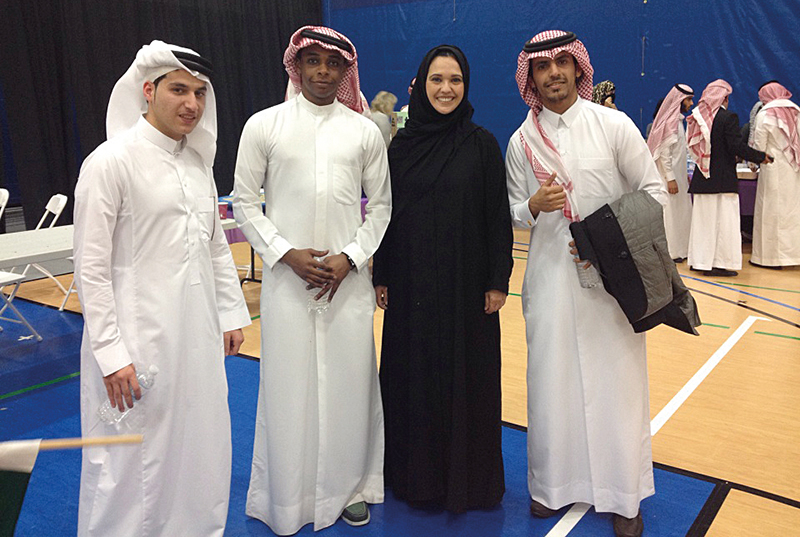 Apart from the “Bedouin” tradition that warms the heart, my Saudi students have also taught me that despite great differences in culture and religion, people will always recognize the innate value of kindness and love. Due to the recent violence perpetrated by barbarians (ISIS) who use “Islam” as their excuse for power through death and destruction, Islam has come under scrutiny by some who claim it to be a religion of violence. This couldn’t be further from the truth. Christianity one used extreme violence and bloodshed as evidenced in the Thirty Year’s War, The Crusades and the Inquisition to impose its rule on non-believers. When the Muslim Moors ruled the south of Portugal and Spain in the 8th century until the 15th century, they were known to be tolerant of other religions. Even in recent times there are people who identify themselves as “Christians” and use violence as we have seen in the Central African Republic with Christians massacring Muslims and. Just as Christianity has evolved and continues to evolve to modern times, we too are witnessing Islam adapt and evolve in this era of mass globalization as young Muslims connect with non-Muslim peers. We have also heard the many Muslim voices who speak against violence in the name of Islam and emphasize the surpassing message of their religion; peace. After all, Islam is younger than Christianity by 600 years and like every institution, is in flux and goes through tribulations and transitions.
Apart from the “Bedouin” tradition that warms the heart, my Saudi students have also taught me that despite great differences in culture and religion, people will always recognize the innate value of kindness and love. Due to the recent violence perpetrated by barbarians (ISIS) who use “Islam” as their excuse for power through death and destruction, Islam has come under scrutiny by some who claim it to be a religion of violence. This couldn’t be further from the truth. Christianity one used extreme violence and bloodshed as evidenced in the Thirty Year’s War, The Crusades and the Inquisition to impose its rule on non-believers. When the Muslim Moors ruled the south of Portugal and Spain in the 8th century until the 15th century, they were known to be tolerant of other religions. Even in recent times there are people who identify themselves as “Christians” and use violence as we have seen in the Central African Republic with Christians massacring Muslims and. Just as Christianity has evolved and continues to evolve to modern times, we too are witnessing Islam adapt and evolve in this era of mass globalization as young Muslims connect with non-Muslim peers. We have also heard the many Muslim voices who speak against violence in the name of Islam and emphasize the surpassing message of their religion; peace. After all, Islam is younger than Christianity by 600 years and like every institution, is in flux and goes through tribulations and transitions.
With my young Saudi students, I see their desire to connect with fellow students from all over the world. Within days of being in class together, Saudis are able to bond with others and share their culture along with an abundance of jokes and laughter. I fondly remember when a group of Mexican university students came to the language center where I taught. By the end of the week, the Saudis were speaking some Spanish, the Mexicans were speaking some Arabic and the Mexican students were being treated to Kabsah (a traditional Saudi rice dish) and to smoking hookah (a type of water pipe with flavored tobacco) on the weekends. My Mexican students never imagined bonding with a culture so different from theirs, so remote from everything that is familiar to them; nonetheless, relationships were sealed and hearts were touched. Because my Saudi students went out of their way to show kindness and love, they made a positive impact on others around them despite such immense cultural differences.

When we open our minds to others we grow as a person and learn that there is much more to how we as individuals view the world. On a greater scale, when we take a risk to venture into the unknown, we break down ignorances and misguided thoughts that have no role in making this world a better place. This important lesson has been imprinted in me more than ever through interaction with my Saudi students. Despite vast differences, people are people. Love, kindness and hospitality know no boundaries and need no language; they’re a language of their own, a universal language.
 Magazine A PRAÇA Magazine A PRAÇA
Magazine A PRAÇA Magazine A PRAÇA
